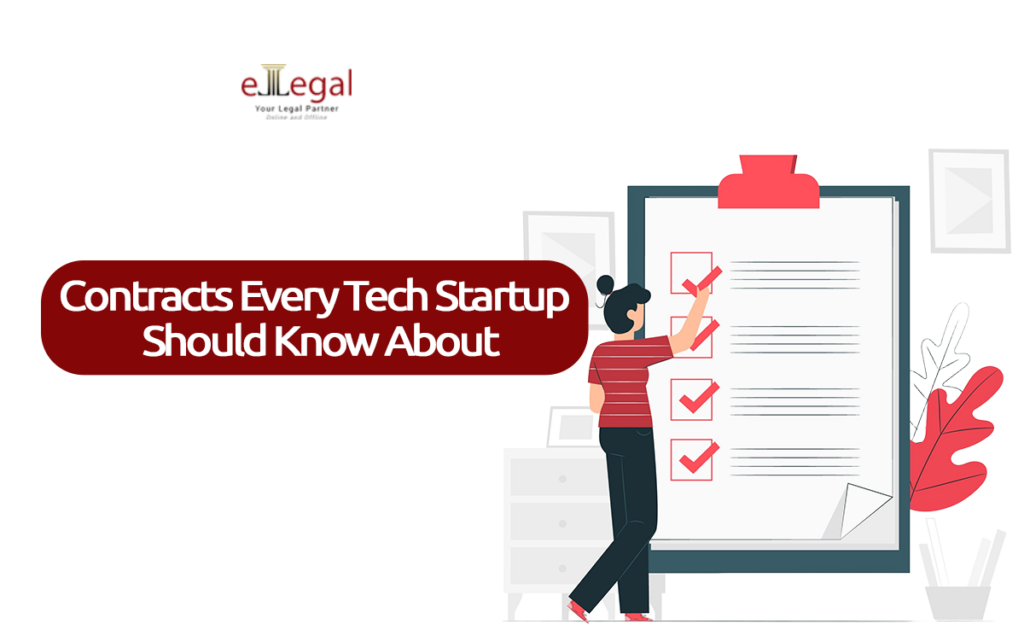In the rapidly evolving realm of technology, innovation stands as the backbone of every thriving business. While the excitement of starting a new tech venture is palpable, it’s crucial to prioritize legal protection and proper structuring from the very beginning.
Whether you’re exploring tech startup ideas or are already engaged in the flourishing tech industry in Nigeria and globally, understanding the essential contracts is key to your long-term success. This blog will highlight the vital contracts that every tech startup should be aware of, specifically addressing the needs of tech startups in Nigeria and other African nations.
It will also clarify what these agreements entail for founders, employees, and stakeholders involved in tech startups in Nigeria and beyond.
Founders Agreement
One of the first contracts you’ll need when starting a tech business is a Founders Agreement. This document outlines the roles, responsibilities, ownership percentages, and contributions each founder brings to the company. It serves as a crucial roadmap for decision-making and conflict resolution.
In Nigeria, the founders’ agreement should be clear about the governance structure of the startup. Tech startups in Lagos or Ibadan, for instance, should be aware of any legal requirements that affect ownership, including intellectual property rights and company registration.
Some key components to include:
- Ownership and Equity Split: Who owns how much of the company and how are shares distributed among founders?
- Roles and Responsibilities: What will each founder do in the early days of the startup?
- Exit Clauses: What happens if a founder decides to leave or sell their shares?
- Dispute Resolution: How will disagreements be handled? This section is especially important in high-stakes environments like those of tech startups in Nigeria, where personal and professional relationships can overlap.
Non-Disclosure Agreement (NDA)
When building your tech startup, ideas are your most valuable asset. Whether you’re working on tech startup ideas or a revolutionary new app for Nigerian markets, it’s essential to protect your intellectual property (IP). An NDA, or Non-Disclosure Agreement, is a legal contract that prevents individuals or companies from disclosing confidential information about your business to outsiders.
For tech startups in Africa, and specifically in cities like Lagos and Ibadan, the NDA is critical when:
- Sharing proprietary technology with potential partners, investors, or contractors
- Collaborating with other tech startups in Nigeria or overseas
- Entering into negotiations for joint ventures or partnerships
Without an NDA, you risk losing control of your intellectual property, which can be devastating in a competitive and fast-evolving industry.
Employee Contracts: Establishing Roles and Expectations
As your tech startup expands, hiring employees becomes essential. Employee contracts are crucial in ensuring both you and your team are aligned on roles, responsibilities, and rights within the company. In Nigeria, it’s important to ensure these contracts comply with local labor laws, which regulate salaries, working conditions, and employee benefits.
When drafting an employee contract for your tech startup, keep the following key points in mind:
- Compensation and Benefits: What salary will employees earn, and what additional benefits will they receive? Be sure to meet Nigeria’s minimum wage requirements and outline any extra perks or bonuses.
- Non-Compete Clauses: What happens if an employee leaves your company? Can they join a competitor or start their own business in the same space? Non-compete clauses can help safeguard your company’s interests, especially in competitive markets like Lagos or Ibadan, where tech startups thrive.
- Intellectual Property (IP) Ownership: Any tech or software developed by employees during their time with your company should be owned by the company, not the individual. This is especially important for tech startups across Africa, where innovations are crucial for scaling internationally.
By addressing these factors clearly in your contracts, you’ll ensure smoother operations and stronger protection for your business as it grows.
Employee Stock Option Plan (ESOP)
An Employee Stock Option Plan (ESOP) allows founding teams and their staff to gain a stake in the company. By granting stock options, startups can entice and keep skilled professionals by providing them with equity in the business. Startups can include an ESOP in their employment contracts, which are regulated by the employment laws of their respective countries.
Service Agreement: Clarifying the Terms of Business with Clients
Tech startups often negotiate with clients for services such as software development, consulting, or data analytics. A Service Agreement outlines the scope of work, pricing, deadlines, and performance expectations.
This contract helps to:
- Set clear expectations about deliverables, timelines, and payment terms
- Prevent misunderstandings between your startup and your clients
- Establish intellectual property rights and confidentiality terms
For example, tech startups in Nigeria will likely enter into contracts with clients to develop software solutions for specific industries like agriculture, finance, or e-commerce. These agreements should clearly define the work to be done, milestones to be met, and payment schedules.
Investment Agreement
A crucial contract for startups to consider. It impacts the financial health, future prospects, and overall stability of the business. Startups need to establish clear terms with current and potential investors, detailing risks, liabilities, expected returns, share ownership, equity, and more.
Licensing Agreement: Navigating Technology Use and Distribution
Tech startups often create software, apps, or other tech products that they wish to license to others. A Licensing Agreement allows a third party to use your technology or intellectual property while setting compensation, duration, and exclusivity terms.
Key points to include:
- Scope of License: What exactly is the third party allowed to do with your technology or IP? Are they allowed to distribute it or modify it?
- Compensation: How will you be compensated for the use of your technology? This could include a one-time payment, royalties, or revenue-sharing.
- Exclusivity: Is the license exclusive, meaning the third party has sole rights to use your technology, or non-exclusive, meaning you can license it to others?
Partnership Agreement: Collaborating with Other Companies
Partnerships are essential for scaling your tech startup. Whether it’s partnering with other tech startups in Nigeria or global firms, a Partnership Agreement is necessary to formalize the terms of collaboration.
Key aspects to include:
- Division of Profits and Losses: How will profits be split among partners? This is especially important for tech startups in Lagos, where business relationships are built on mutual benefit and shared risk.
- Roles and Responsibilities: What role will each partner play in the venture? This section helps clarify the contribution each partner brings to the table.
- Exit Strategy: What happens if a partner wants to exit the partnership? It’s essential to establish a buyout or dissolution strategy upfront.
Conclusion
Starting a tech business can be tricky, but getting the right contracts in place is key to building a strong foundation. Whether you’re planning a new startup or already launching one, contracts like NDAs, employee agreements, and partnerships help protect your ideas and minimise risks.
In Africa, where tech startups are booming, having these legal tools ensures you’re compliant with local and global laws while giving your business a solid, professional reputation. With the right contracts, you’ll be better equipped for growth and success in the fast-paced tech world.
We at eLegal Consultants are well qualified to help you navigate this terrain, we are experts in drafting various contracts and agreements needed to protect you and your business. Contact us today.




